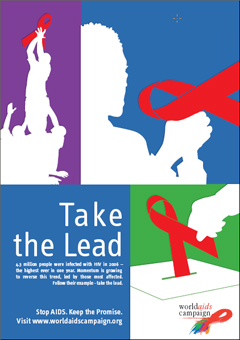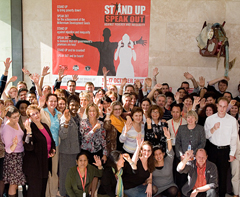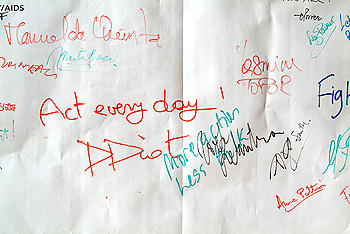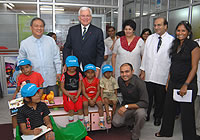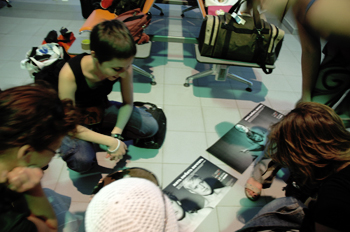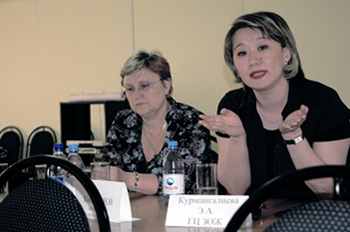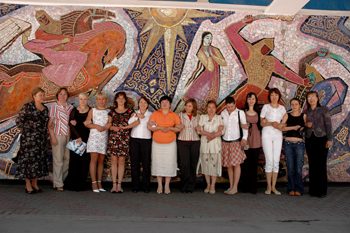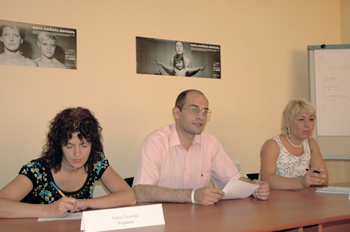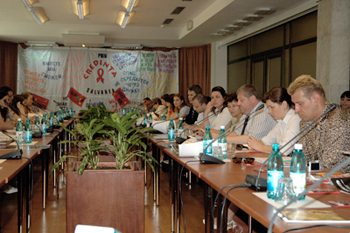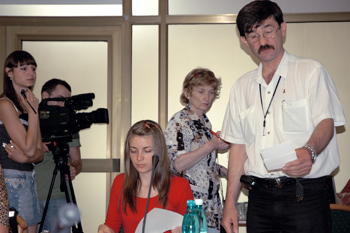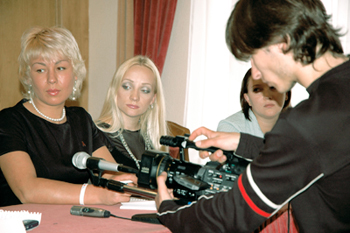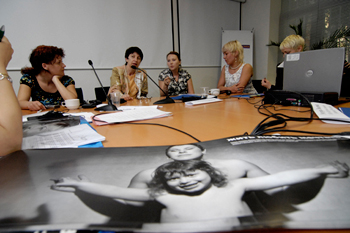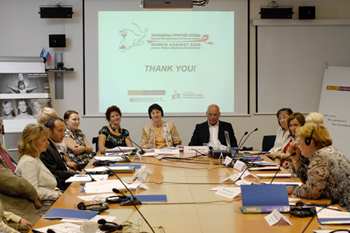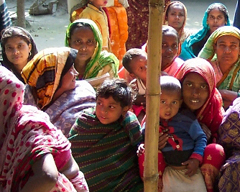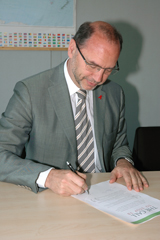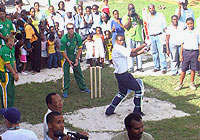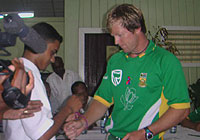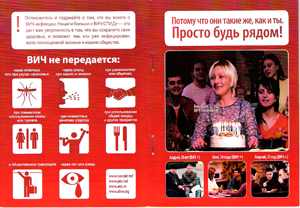 Brochures, posters, calendars, and other informational materials
Brochures, posters, calendars, and other informational materials
that are being distributed throughout the country as part of the
media campaign to end stigma and discrimination.“I cannot get infected, because I don’t live in Africa,” says Mihai, a 35-year-old man living in the capital of the Republic of Moldova, Chisinau . “Also, I don’t do drugs, I don’t practice sex for money, and I’m not gay. So, I cannot get infected”, he adds.
Alexandru, 23 years old, remembers: “One of my schoolmates is HIV-positive. After the class reunion, we continued our discussion at my place. When everybody left, I tried to remember which objects he had touched; I didn’t know what to do with the dishes he had used.”
These testimonials are part of a recently launched national campaign to promote solidarity with people living with HIV in Moldova. Extracted from real life examples, they reveal deeply rooted misconceptions about AIDS in Moldova.
“In 2005, we discovered with great concern the results of a survey on the attitude toward people living with HIV” said Mrs. Gabriela Ionascu, the UNAIDS Country Coordinator in Moldova. “We had to address stigma associated with HIV in Moldova urgently”.
The survey conducted by the AIDS Foundation East-West revealed that 74% of the respondents believed that people living with HIV should not be allowed to attend medical and social facilities used by the rest of the society. 64% of people surveyed said they experienced a certain degree of fear toward HIV-positive people, 45% expressed disgust, 37% felt anger, while 41% were totally indifferent.
Cooperating with UNAIDS, the Moldovan National Coordination Council, the Ministry of Health and Social Protection, as well as the Moldovan Orthodox Church—the AIDS Foundation East-West developed a concept for a large scale national campaign. The group raised sufficient funds to produce four video clips for national television, short radio messages and outdoor advertisement billboards. With financial support from the Swedish International Development Cooperation Agency (SIDA), the campaign aims to overcome groundless fears and negative attitudes toward people directly affected by HIV and debunking some of the myths around AIDS by conveying accurate information about HIV transmission.
Under the slogan “Because they are no different from you. Just be supportive!” the campaign will run, over four months, in five regions: Chisinau, Baltsi, Edinets, Comrat, and Tiraspol. A number of social events are also planned to encourage interactions and debates.
The campaign gives voice to people living with HIV who tell their stories of injustice and rejection by other members of their communities. It also allows HIV-negative people to speak about their fears regarding HIV as well as how they managed to overcome them. Every effort is made to facilitate identification with the characters in the campaign and to go against the idea that AIDS is a far distant problem.
“This campaign is unique”, says Elena Voskresenskaya, Regional Director of the AIDS Foundation East-West, “because for the first time such an activity involves people living with HIV. This is their first attempt to tell the society about their feelings, fears, problems, and dreams, thus striving to elicit a more tolerant attitude toward HIV and AIDS”.
According to the latest official figures, approximately 3 400 people are living with HIV in 2007 in the Republic of Moldova.
AIDS Foundation East-West (AFEW) is a Dutch nongovernmental humanitarian organization working in the field of public health to reduce the impact of HIV in Eastern Europe and Central Asia. AFEW works in all areas of prevention and treatment, and has gained valuable experience in conducting informational campaigns. AFEW is guided by international best practices which take into account and use the specific mentalities and traditions of the people in every country.
Links:
View the videos
UNAIDS Moldova website
AIDS Foundation East-West (AFEW) website






